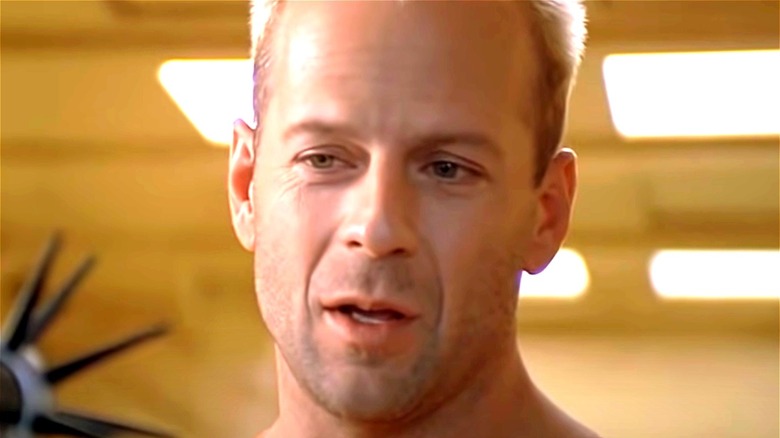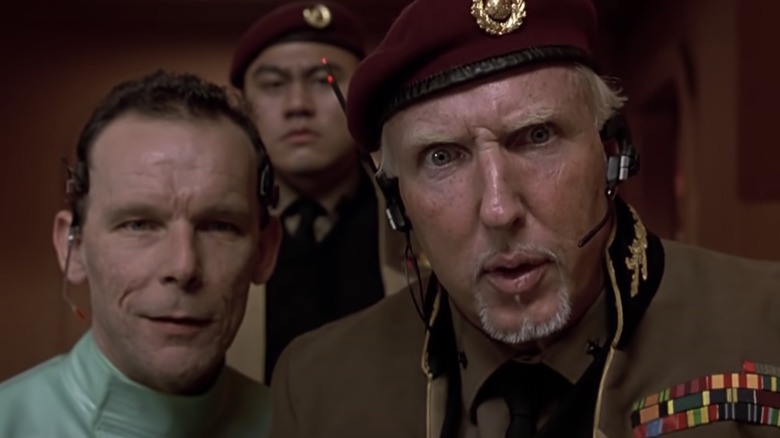The Fifth Element Scene That Aged Poorly
When "The Fifth Element” released back in 1997, the hyper-stylized space opera marked a welcome return to some of the weirder roots of sci-fi. Set in the 23rd century, the film follows Bruce Willis as former military officer (and current down-on-his-luck taxi driver) Korben Dallas, who is charged with protecting a mysterious girl named Leeloo (Milla Jovovich), who holds the fate of the entire world in her hands, being a physical manifestation of "The Fifth Element" itself.
Along the way, the two must contend with the villain Zorg (Gary Oldman), a powerful industrialist who is secretly working for "the great evil," and his cronies, a group of alien mercenaries known as the Mangalore. It's certainly one of the oddest movies you'll ever see, and part of what makes it so memorable is the film's humor.
Rather than shy away from the weird fiction inspirations that lie at the core of the sci-fi genre, director Luc Besson embraced them, resulting in plenty of moments that are so ridiculous that the audience can't help but burst out laughing. But while Besson might have thought one particular scene was funny at the time, the scene comes across in a much creepier way when watching it today.
The scene is more concerning than it is funny today
The scene in question is our introduction to the character of Leeloo, the fifth element herself. After the spaceship carrying the fifth element is shot down by the Mangalore, a group of scientists gets to work reconstructing the element from a severed hand found in the wreckage. They are justifiably shocked when it turns out that the element they've been reconstructing is a naked woman with bright orange hair.
Also present in the room alongside the scientists is a military officer, decked out in full uniform and with plenty of medals on his chest. When the regeneration pod unveils the naked Leeloo, his eyes get wide and he turns to the scientist beside him, and casually says "I'd uh... like to take a few pictures." He pauses, letting all the creepiness of that line wash over the audience, then adds: "for the archives."
It's one of many little moments in the film that Besson included to get a laugh out of the audience, but it certainly doesn't come across as funny today — just unnecessary. It also doesn't help Leeloo is completely unconscious at the time he asks to photograph her.
Whatever Besson's original intention might have been, the officer's line casts the whole scene in a much more disturbing light. The group of men looking at Leeloo through the glass seems a lot less like curious scientists, but creepy voyeurs.

